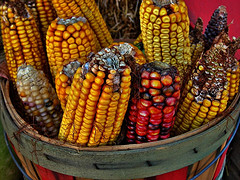Dr. Coll Thrush (History UBC) gives a talk in the ANSO 205 this Thursday on:
Becoming Aboriginal: The Secret History of the Potato on the Northwest Coast, 1770-1850
In 1825, French gastronome Anthelme Brillat-Savarin famously wrote, “Tell me what you eat, and I will tell you what you are.” His statement came at a time when ideas about the connections between people and their environments were hardening into hierarchies that linked race to nature, and the apparent equation between food and culture was part of this development. However, on the Northwest Coast of North America, a historical process was underway which challenged European notions of culinary determinism. Beginning the 1770s, the Coast Salish, Nuu-chah-nulth, and other aboriginal peoples of the Northwest Coast actively incorporated an introduced food, the potato, into their traditional food systems. By the 1850s, when permanent settlement by Europeans began in earnest, the potato had become a central part of the foodways of many Northwest Coast peoples, to the extent that in some cases their gardens made the newcomers survival possible. In conflictsover land and through attempts at civilizing Indians through forced agriculture, however, this tradition would largely be forgotten. In examining the cultural and environmental history of the potato on the Northwest Coast including modern-day efforts to revive the nearly-extinct indigenous cultivars of the region, this paper challenges Brillat-Savarin’s persistent notion that food, culture, race, and place are static concepts with clearly-defined boundaries. Drawing on oral tradition, archaeological data, phylogenetic studies, and archival materials, the paper suggests a path toward a complex, dynamic approach bringing food history and aboriginal history into conversation with each other.
When: Thursday, March 29, 2007at 11:30.
Where: ANSO 205
For a list of Dr. Thrush’s research and publications, please see his home page on the History Department website.

